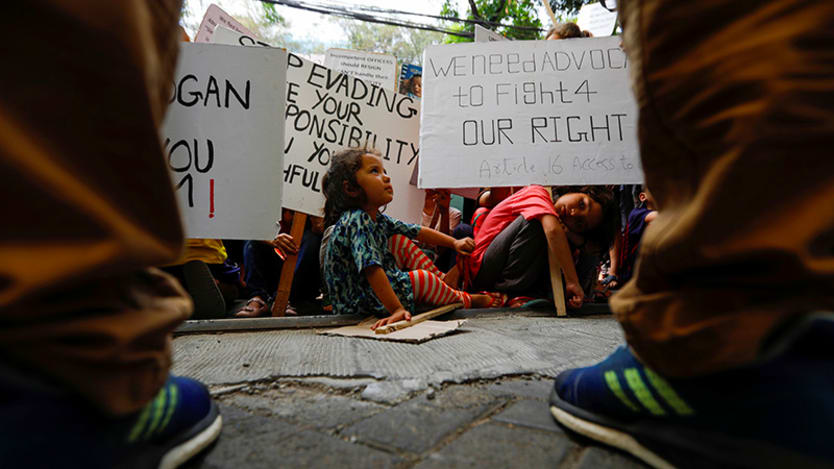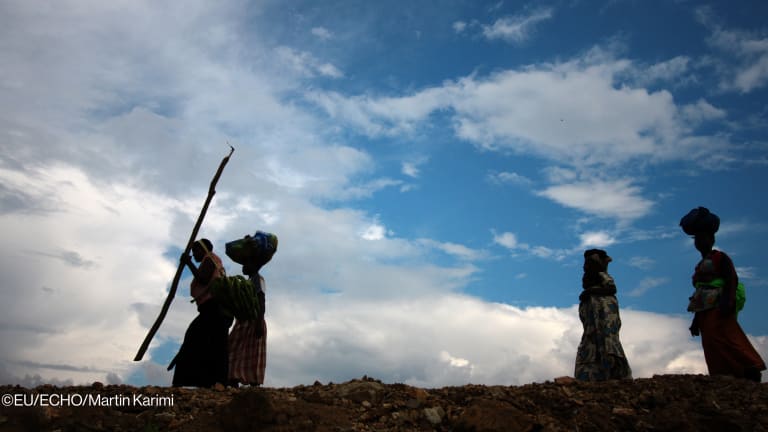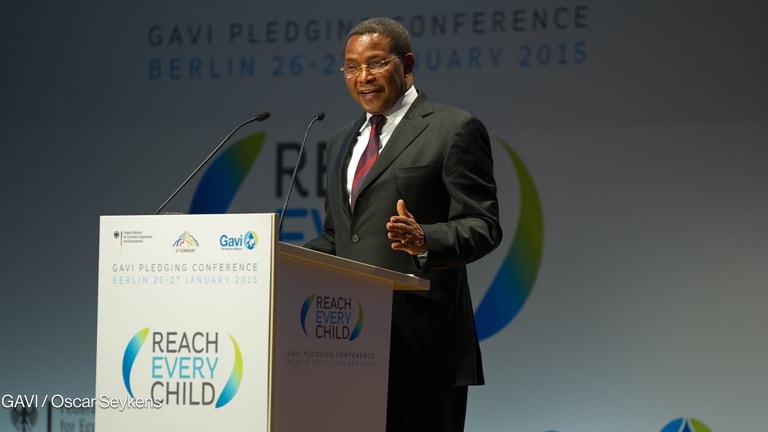
It turns out that 30 years was not enough to achieve universal respect for child rights.
Wednesday marks the 30th anniversary of the adoption of the U.N. Convention on the Rights of the Child, or UNCRC, which has become known as the most widely ratified human rights convention of all time, signed and ratified by all United Nations members — except the United States. But violence against children, particularly in humanitarian contexts, has been the main barrier to achieving those rights.
The UNCRC covers all child rights, including education, health, protection from violence, the right to be heard, and more. It calls on all member states and signatories to uphold these rights. But are children better off today than they were 30 years ago? With 81% of all children living in a conflict-affected country in 2017, it’s clear there’s more work to do.
Global estimates show that the number of children abducted and used to fight wars and support armed groups increased 159% between 2013 and 2018.
— Nicole Behnam, senior director of violence protection and response, International Rescue CommitteeProgress has certainly been made in some areas. Thanks to immunizations as well as maternal and child health access, the annual number of global under-5 deaths has dropped significantly, from 12.5 million children in 1990 to 5.3 million in 2018. Improvements in education are more bittersweet: While the number of out-of-school children of primary school age declined globally from 115 million to 59 million between 1990 and 2018, most of the gains were made in the 1990s and early 2000s, and have slowed since 2007. In fact, the number of out-of-school children of all ages has increased by 1.7 million since 2014.
However, we have seen little to no progress — and, in some cases, reversals — in the rates of violence against children. And yet it remains the most underfunded and under-addressed issue facing children today.
Estimates suggest that around 1.7 billion children experience some form of neglect or physical, emotional, or sexual violence each year. This can be attributed to a variety of reasons, including the fact that some forms of violence against children are socially accepted, tacitly condoned, or not perceived as abusive. And this violence is not limited to older children: 300 million children worldwide between the ages of 2 and 4 experience violent discipline every year; 120 million girls globally have experienced sexual violence.
These trends are even starker if we look at humanitarian and conflict settings, where child rights are a far-off dream for many children. Of the 1.8 billion children living in conflict-affected countries in 2017, 420 million lived in a conflict zone.
In 2019, the number of displaced and refugee children has increased to a staggering 25.9 million. In these contexts, protection from violence and access to health care and education are very limited, if not entirely unavailable. And some of the most egregious forms of violence against children are increasing at alarming rates. Global estimates show that the number of children abducted and used to fight wars and support armed groups increased 159% between 2013 and 2018. While industrialized countries have enjoyed certain advances, conflict-affected countries are far behind.
An Overseas Development Institute-commissioned study in 2014 estimated the annual cost of violence against children at $7 trillion. And yet funding to address this and to research what works to prevent it is abysmal. Currently, only 0.5% of humanitarian funding is allocated to protecting children from violence, despite the clear fact that it remains the most intractable issue facing them and hindering the realization of their rights.
The child rights enshrined in the UNCRC are universal, and therefore we have an obligation to ensure all children, no matter where they live, are able and supported to exercise them freely. There are ways that progress can be made, but only if true action is taken.
Western governments must transform the rhetoric around rights and protection into real action. They must support the rights of children, even those trying to enter their countries from elsewhere. And rather than just refugees or asylum-seekers, they must remember that these are, first and foremost, children.
Governments of developing countries and those in humanitarian contexts must take ownership and responsibility for their children. Many high-level commitments to end violence against children with inspiring rhetoric have been made. But as recent reviews have revealed, very little action of substance has been taken.
Donors must prioritize funding for humanitarian response and recognize the return on investment from preventing and responding to violence against children. Research has shown that investing in child development and preventing and responding to violence for adults and children has up to a $17 return on investment — that is, for every dollar spent, $17 is gained. This constitutes an ROI that is higher than for any other sector. In countries affected by conflict, this investment is even more important, as the impact of the violence on children has a lasting effect on their mental health and well-being, perpetuating the cycle of conflict and violence.
The humanitarian sector must break down the silos we have created. If a child survives to the age of 5 but is unable to access and complete primary school and is abused while at school, that child will not grow to be a healthy adult contributing positively to their country’s economy and growth. The U.N. and INGOs must work across sector silos to design outcome-driven programs that comprehensively address all the needs of children.
Nelson Mandela once said, “There can be no keener revelation of a society’s soul than the way in which it treats its children.” Children may not have the loudest voices in the room, but theirs are the voices that will shape the world long after we are gone. Let’s give them the future they deserve.








